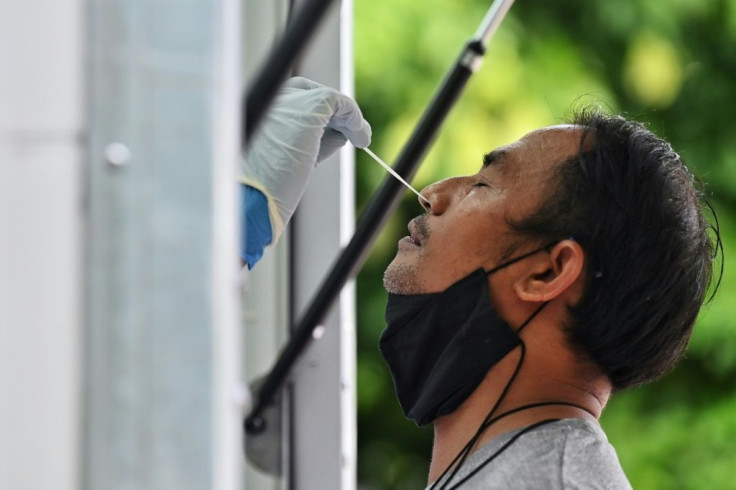Thailand Imposes Tougher Covid-19 Curbs, Including Bangkok Curfew
Thai authorities announced a seven-hour night curfew across the capital Bangkok and nine provinces on Friday, along with other tougher restrictions to curb the spread of the coronavirus.
The kingdom recorded 9,276 new daily cases and 72 fatalities as it battles a severe third wave of infections that kicked off in April.
An official from the government's coronavirus taskforce announced the ramped-up restrictions following an hours-long meeting on Friday.
A curfew from 9 pm to 4 am will begin Monday and people should work from home.
The announcement affects the capital of more than 10 million people as well as surrounding and southern provinces.
"We apologise for difficulties of people living in areas with maximum restrictions, but this will support disease control efficiently. Thailand will be victorious," said Apisamai Srirangson, assistant spokeswoman for the taskforce.
"Unnecessary travel will be prohibited."
Residents are barred from gathering in groups of more than five people, while public transport networks will shut down from 9 pm each night.
Supermarkets, restaurants, banks, pharmacies and electronics stores within malls can stay open but other shops must close.
Air Asia announced on Friday evening it was suspending domestic flights in Thailand for the rest of July in order to cooperate with government efforts to reduce inter-provincial travel.
The airline said it would be in touch with affected passengers and will resume flights August 1.

In April last year, the government ordered a nationwide curfew but Thailand spent the bulk of 2020 without much community transmission.
A year later case numbers are mounting and the government faces heat over its slow vaccine rollout, limited testing capacity and questions over its economic management.
Thailand's economy is suffering its worst performance since the 1997 Asian financial crisis.
Premier Prayut Chan-O-Cha indicated Friday he would forgo his salary for three months.
Earlier on Friday, anger was boiling over at two free testing clinics in Bangkok. Hundreds of people had queued in the rain from 10 pm Thursday for a swab in the morning.
"We didn't get to sleep, plus it's been raining for three or four hours and we have to sit with umbrellas unfurled like this," Tai, 47, told AFP outside Wat Phra Si Mahathat Buddhist temple.
"Thailand has always been like this. There is no responsibility," another man said outside the Mahanak market testing site.
The restrictions come as the kingdom attempts to reopen as a tourism destination.
Tourism makes up close to 20 percent of national income and the industry has been on its knees because of tough border restrictions and strict quarantine measures.
A pilot scheme to offer quarantine-free holidays to vaccinated travellers kicked off on the popular holiday island of Phuket last week, but so far arrivals have been limited due to red tape.
The Thai government announced plans last month to reopen the country to fully vaccinated visitors in October.
© Copyright AFP 2024. All rights reserved.





















